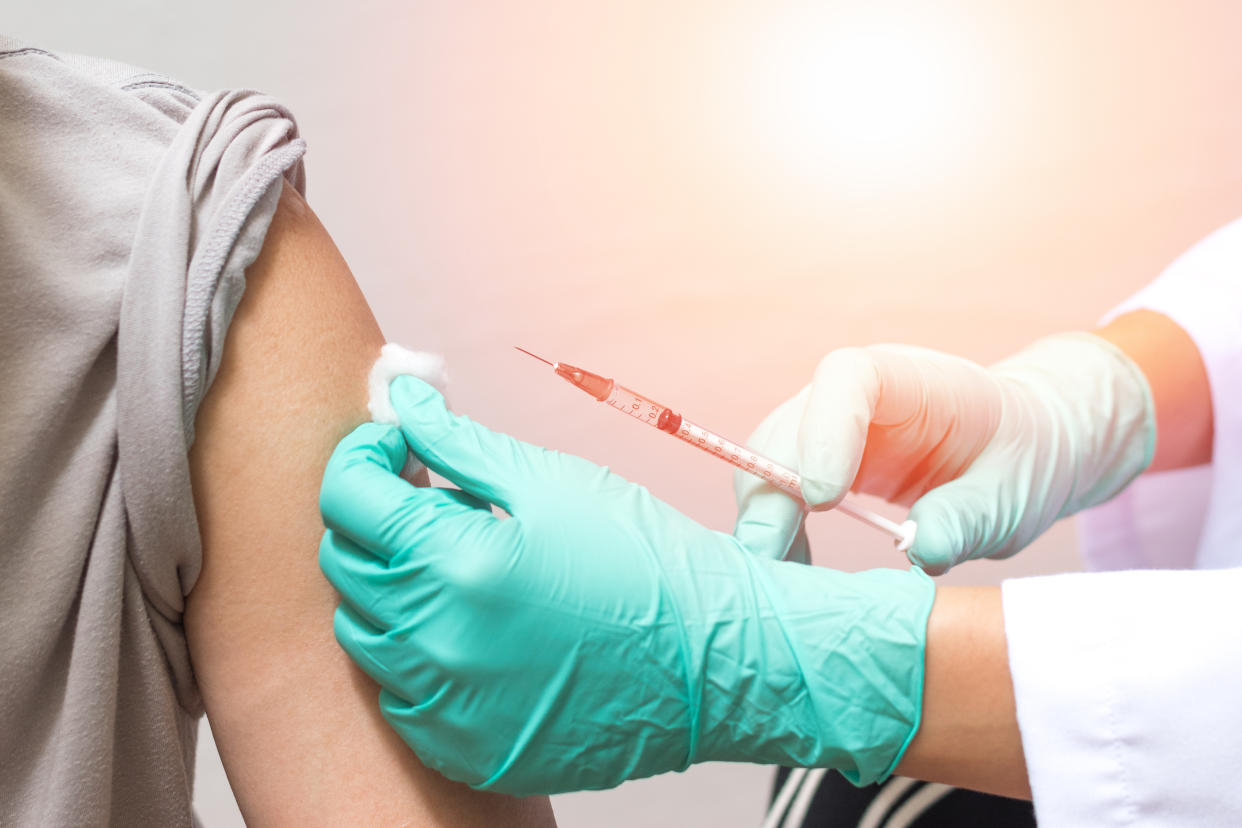Vaccinate your children against flu or prepare for a 'Christmas to forget'

An NHS official is urging parents to vaccinate their children against flu before the festive season really kicks in.
Toddlers and primary-school students are eligible for a free flu jab on the health service, however, less than two thirds of two-to-three year olds have been immunised this year, The Telegraph reported.
Children are generally less hygienic - and more affectionate - than adults, making them “super spreaders”.
With Christmas a time to get together with family, an expert warns sickly youngsters could pass the infection on to their elderly grandparents.
READ MORE: Who should get the flu vaccine?
“We know children are 'super spreaders' of flu, particularly around the holiday season when they're more likely to see elderly relatives,” Stephen Powis, medical director of NHS National, said.
“So our message is simple: The flu season is here, get your jab now.
“It might be the difference between a Christmas to remember and one to forget.”
Flu is unpleasant with symptoms including fever, aching, exhaustion, headache and a dry cough, according to the NHS.
While it usually passes within a week, certain people are more vulnerable to the infection, including those over 65.
If an elderly person catches flu, they are more likely to develop complications like pneumonia and bronchitis.
For this reason, the NHS also offers a free vaccine to those aged 65 or over.
READ MORE: 5 everyday places cold and flu viruses linger
Ideally, people should get immunised before flu season starts, usually the end of October in the UK and US, according to the Centers for Disease Control and Prevention.
It takes around two weeks for virus-fighting proteins, called antibodies, to develop in the body. For maximum protection against flu, it is therefore best to “pre-empt” an outbreak.
With flu season typically peaking around January or February, it is not too late to get the jab.
The number of people booking a GP appointment for flu-like symptoms reportedly rose by nearly a quarter (24%) last week, while 472 hospitalisations also took place.
For every 100,000 people in hospital, around five have flu, making it “moderate intensity”, the Telegraph reported.
Chief medical officer Chris Witty warns flu season has “started early in the UK” and the vaccine is the best protection against it. The jab is available from GP surgeries or pharmacies.
READ MORE: All primary school children to be offered free flu vaccine
If you catch flu, wash your hands regularly with warm water and soap to avoid spreading it.
The NHS also recommends sneezing or coughing into tissues. These should then be thrown away, with the virus lingering on surfaces for up to 24 hours.
Flu can usually be treated at home via rest, plenty of fluids and painkillers, if necessary.
If a vulnerable person catches flu, call the NHS non-emergency number 111 for advice.
As well as the elderly and young, these include those with long-term medical conditions, weak immune systems or symptoms that last longer than a week.


